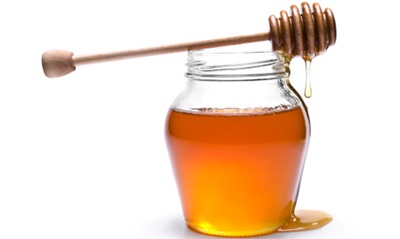
The honeybee has got to be the most selfless animal in the world. Sure, other animals provide food to us, but without the humble honeybee, would we even have food?
Honeybees are the only insects that create a food that we eat. They also pollinate nearly 80% of all fruit, vegetable, and seed crops in the U.S., and they don’t even expect a thank you.
Honey can certainly bring natural sweetness to everyone, every day. But what are the health benefits of honey? Adding natural and raw honey to your meal can greatly benefit your health.
Five Amazing Health Benefits of Honey:
1. Honey for lower blood sugar
In some circles, honey is considered unhealthy because it contains both fructose and glucose. Although honey has a glycemic index of 75, it has less dramatic effects on blood sugar levels than cane sugar, which is used by food manufacturers in foods with preservatives. Like all sugars, though, it is best to use honey in moderation.
2. Honey can help lower disease
Honey contains an abundance of various natural antioxidants, which can improve health and lower risk of disease. In particular, buckwheat honey increases the antioxidant value of the blood. The natural antioxidants from honey can help the body eliminate harmful free radicals that may lead to cancer or other diseases.
3. It’s a natural energy-booster
Honey is a good source of carbohydrates (17 grams per tablespoon), which provides a quick and natural boost for athletes. Honey is considered to be a more healthful energy food, containing vitamins (B6, thiamin, niacin, riboflavin, pantothenic acid, certain amino acids, and vitamins C, D, and E) and minerals (calcium, copper, iron, magnesium, manganese, phosphorus, potassium, sodium, and zinc). Honey also maintains glycogen levels, and helps improve recovery time better than other non-natural sweeteners.
4. Honey can prevent obesity
The many natural vitamins, minerals, and amino acids in honey also help the metabolizing of undesirable cholesterol and fatty acids, preventing obesity.
5. Honey reduces cough and throat irritation
Are there any nutritional differences between the different types of honey? Most honey contains the same things, but buckwheat honey helps with coughs. A single dose (one teaspoon) of buckwheat honey helps to relieve the nocturnal cough, allowing for proper sleep.
Types of honey
Different honeys produce various flavors, depending on the bee’s flower or the plant source of the nectar.
Here are some types of honey that you will typically find at the grocery store or health food store:
- Lighter honeys: Alfalfa, Clover
- Medium honeys: Wild Dandelion
- Darker honeys: Manuka, Buckwheat, Wildflower
The honey with the most benefits
Honey has many health benefits, but manuka honey is slightly more praised for its healing abilities. This honey is produced in New Zealand, as the bees pollinate the country’s manuka bush. The major antibacterial component in manuka honey is methylglyoxal—this is a compound found in most types of honey, but only in minimal quantities. Manuka honey is generally used for treating minor wounds and burns. Studies show it is effective on leg ulcers, for fighting infections and for promoting healing.
The Bottom Line
While there are many health benefits to eating honey, the process of how honey is made may stymie people. Vegans don’t eat honey because it comes from an animal. How the honeybees create the honey may also bother people. But at the end of the day, this sweet food comes with a lot of health benefits.
So, bee good and bee grateful for your honey.
Related:
Sources:
“What Is Clover Honey?” wiseGeek web site; http://www.wisegeek.com/what-is-clover-honey.htm.
“A Sweet, Sweet Summer: Does Raw Honey Have Nutritional Health Benefits?” Kitchen Stewardship web site, June 28, 2011; http://www.kitchenstewardship.com/2011/06/28/a-sweet-sweet-summer-does-raw-honey-have-health-benefits/.
Herrington, D., “10 Health Benefits of Honey,” Real Food For Life web site; http://realfoodforlife.com/health-benefits-of-honey/.
“Honey Nutrition Facts,” Benefits of Honey web site; http://www.benefits-of-honey.com/honey-nutrition.html.













